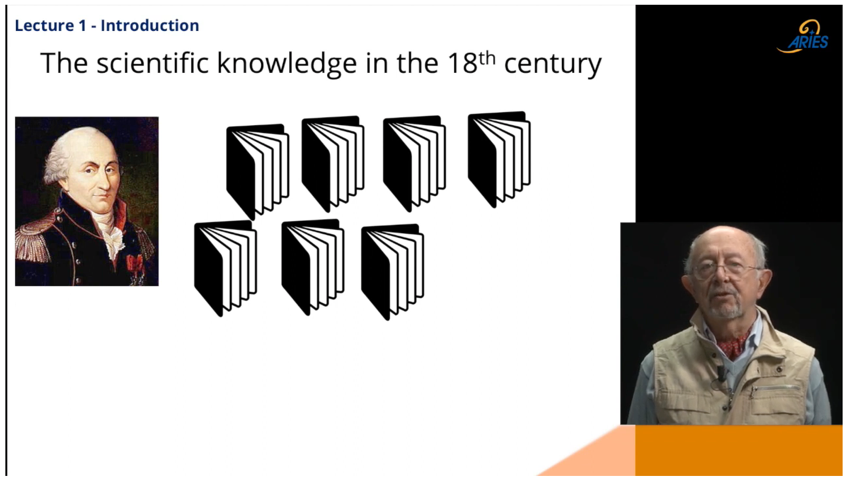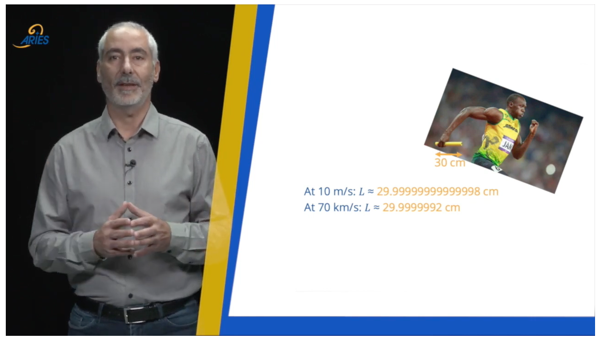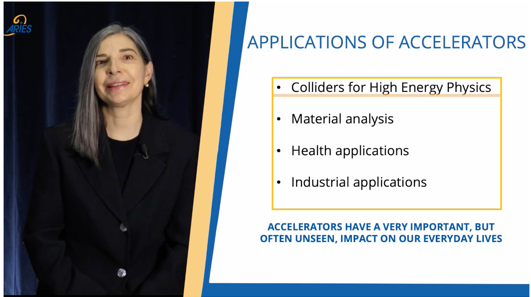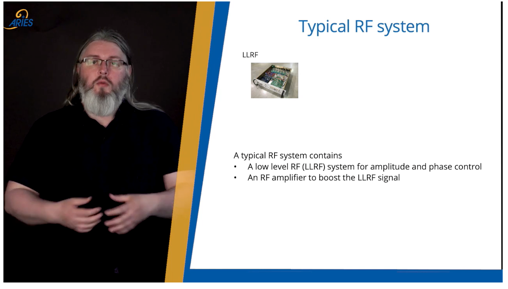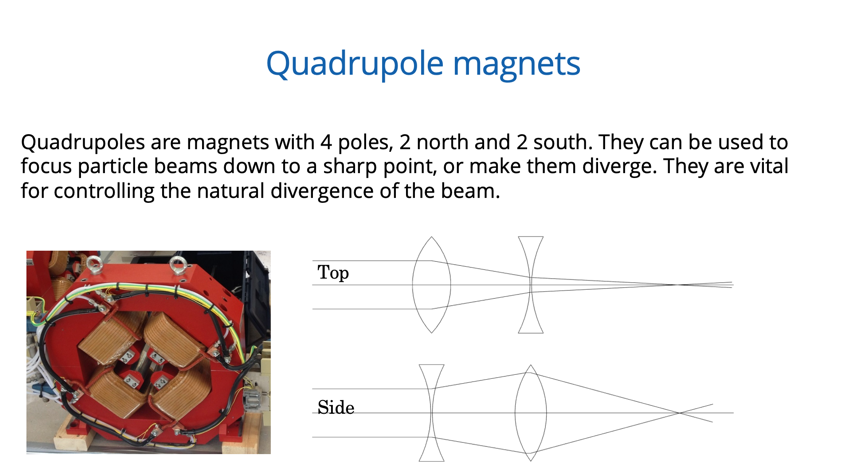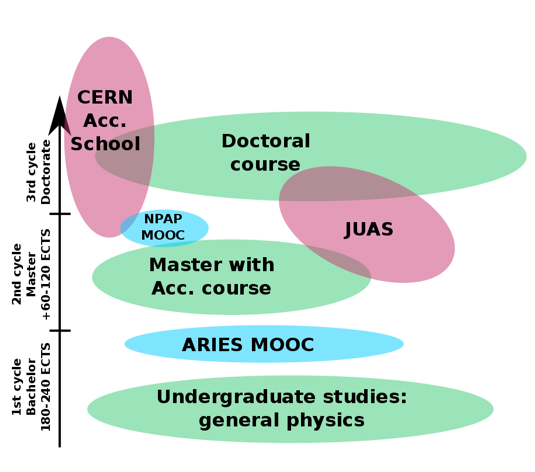
Back in 2012, a survey conducted as part of the TIARA project identified a strong need to train future accelerators physicists and engineers but at the same time a lack of training opportunities in most European Universities. The training opportunities for accelerator scientist are concentrated in a few Universities and laboratories who either provide in-house training or send their students to schools such as the Joint Universities Accelerator School (JUAS) or the CERN Accelerator School (CAS). Such training is usually provided at the master level (the European Accelerators Education Landscape is shown on figure 1) and there are almost no training opportunities in accelerators at undergraduate level.
However, to train the next generation of researchers, it is important to also offer education opportunities to students coming from smaller universities and from countries less advanced in accelerator technology.
To initiate undergraduate students to accelerator physics and engineering and to attract them toward graduate studies in the field, a Massive Online Open Course (MOOC) has been setup with funding from the ARIES project. To take into account the diversity of training in Europe, the curriculum of this course was decided by committee with lecturers from several European countries. This course is available at the following link.
It features 5 lectures:
- Introduction to Particle Accelerators by Philippe Lebrun, Nicoletta Baboi, Simona Bettoni and Marie Labat.
- Electromagnetism by Vittorio Vaccaro.
- Special Relativity by Elias Metral, Mauro Migliatori and Tatiana Pieloni.
- Applications of Accelerators by Angeles Faus-Golfe, Rob Edgecock, Franck Hold, Mike Seidel and Dagmara Smietanko
- Radiofrequencies for particle accelerators by Graeme Burt, David Alesini, Claire Antoine and Erk Jensen.
- A sixth lecture about Magnets by Alex Bainbridge should be added soon, as well as further additional lectures.
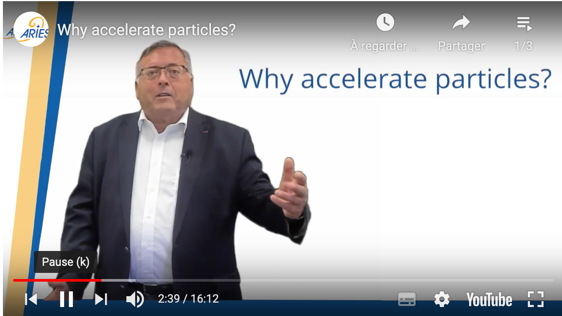
Most of the recording of the lectures had to be done during the sanitary crisis which created additional challenges for the lecturers. The editing was done by Aurélie Rousseau and Hugues Cazin.
This MOOC is intended as a first step for students in the world of accelerators before they attend dedicated course in their universities, at JUAS or at CAS. Another MOOC, more advanced (toward the end of graduate studies) is also available. It has been realized by our colleagues from the Nordic Countries as a complement to the Nordic Particle Accelerator Project (NPAP).
The ARIES MOOC website also features a list of Universities in Europe teaching accelerator at graduate or PhD level. This will help prospective students interested in accelerators to find a University where they start a career working with particle accelerators.
This MOOC is a tool for the community to attract new student. We are looking to all of you to share the link to your students. The JUAS director, Elias Metral, has already decided to use some of these lectures as a prerequisite for JUAS. Feedback from the community on possible improvements would also be very welcome!
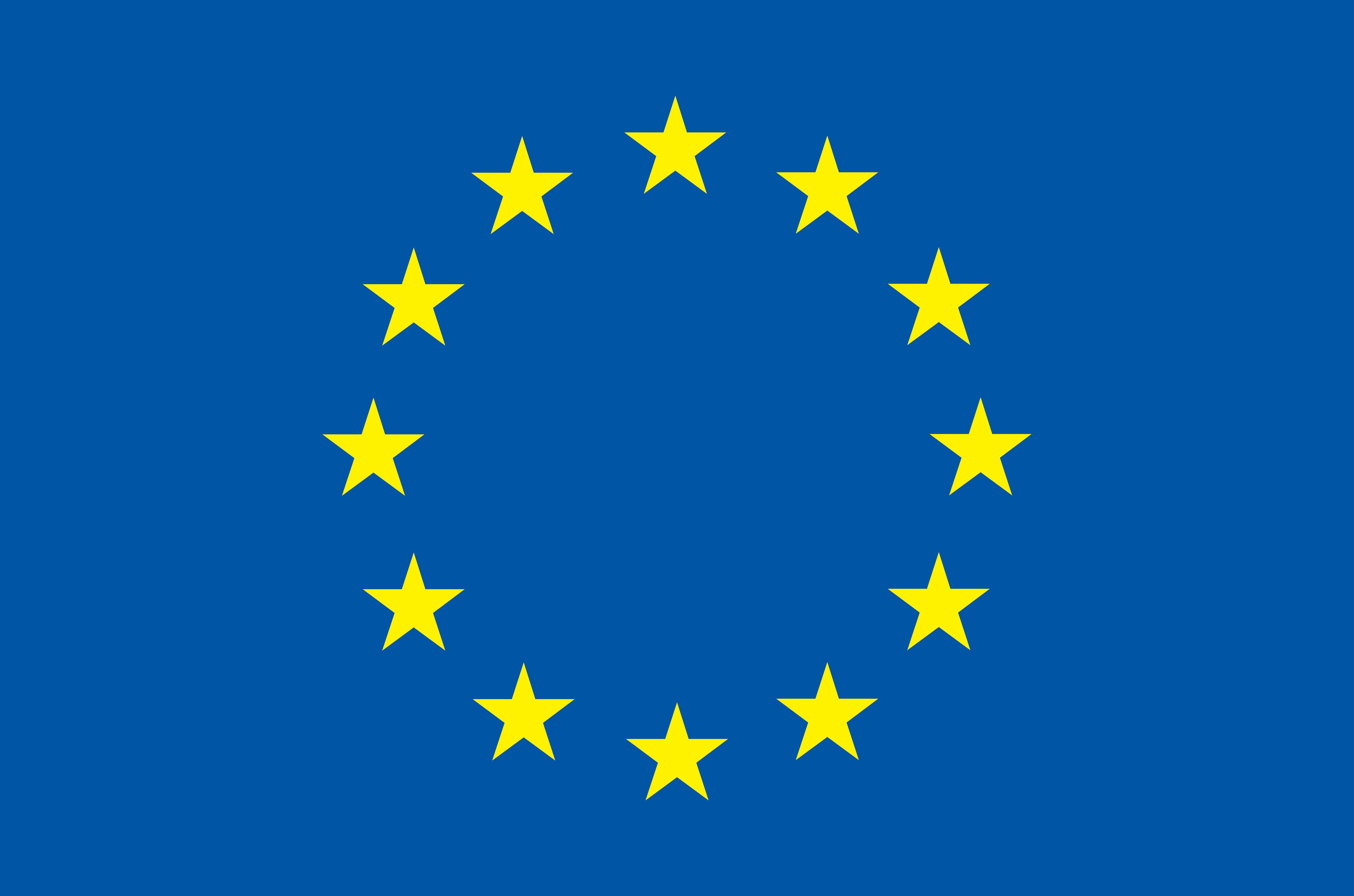 This work is funded by the ARIES project. ARIES is co-funded by the European Commission Grant Agreement number 73087.
This work is funded by the ARIES project. ARIES is co-funded by the European Commission Grant Agreement number 73087.

